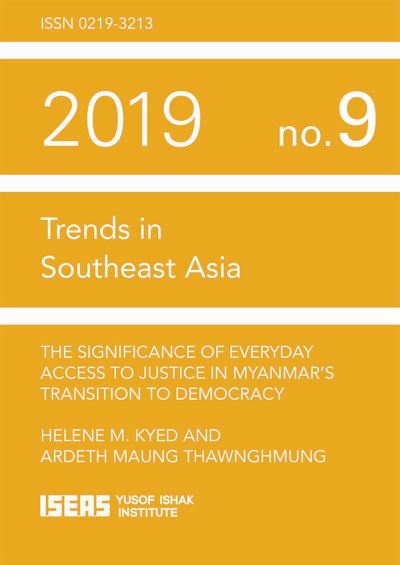
Legal pluralism in Myanmar is a reality that is not sufficiently recognised.
A lack of recognition of and clear mandates for the informal justice providers, along with the absence of coordination between these providers and the judiciary, present critical challenges to local dispute resolution and informal legal systems.
This results in a high level of unpredictability and insecurity concerning the justice outcomes and in the underreporting of cases. The lack of jurisdictional clarity represents an even greater challenge in areas of mixed control and where numerous armed actors are present.
Discussion of reform of the justice sector in Myanmar and debates surrounding peace negotiations and the role of the ethnic armed groups in service provision are separated. This situation reinforces the divide between ceasefire areas and the rest of the country and raises concern that the improvement of justice systems will leave conflict-affected populations behind.
Recognition of and support for community-based dispute resolution are crucial to reducing the escalation of conflict at the local level. Justice systems like those of ethnic armed groups can contribute significantly to stability and order at times when the official system has limited territorial reach and is mistrusted by civilians.
| ISBN: | 9789814843850 |
| Publication date: | 30th August 2019 |
| Author: | Helene Maria Kyed, Ardeth Maung Thawnghmung, ISEASYusof Ishak Institute |
| Publisher: | ISEAS-Yusof Ishak Institute an imprint of ISEAS - Yusof Ishak Institute |
| Format: | Paperback |
| Pagination: | 22 pages |
| Series: | Trends in Southeast Asia |
| Genres: |
Legal systems: judges and judicial powers Legal systems: civil procedure, litigation and dispute resolution Legal systems: courts and procedures Central / national / federal government |